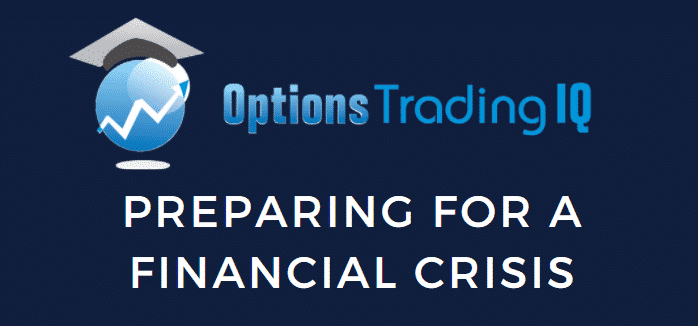

Today we will be talking about preparing for a financial crisis.
You never know, the next one could be just around the corner.
Here are our best tips.
Contents
- Introduction
- What Is A Financial Crisis?
- 3 Tips to Surviving A Financial Crisis
- #1 – Invest in Gold
- #2 – Low-Risk Investments / Defensive Stocks
- #3 – Reduce Your Debt
- The Worst Effects Of A Financial Crisis
Introduction
There comes a time in every investor’s life where they have to make preparations for the possibility of a financial crisis.
What are some of the best investment strategies for surviving a financial crisis?
We will cover some of the safest investment ideas that you can take advantage of to survive a looming financial crisis.
A financial crisis is an undesirable event for most people, including investors.
The good news is that there are some things that you can do to survive a financial crisis.
We will take an in-depth look at historical economic events that have resulted in a financial crisis.
By looking at some of the economic signals from past events, you might be able to see the warning signs before anybody else does when the next financial crisis arrives.
What Is A Financial Crisis?
The simplest definition for a financial crisis is when a significant economic event results in massive declines in the stock market for a large percentage of company stocks.
In many cases, companies cannot pay back their debt, and it results in delinquency.
When a large number of investors panic in the stock market and sell off large percentages of their holdings at the same time, you can see massive stock market crashes that lead to a long-term bear market.
The most recent financial crisis took place in 2008 when the global economy faced ‘The Great Recession‘.
Many investors remember the sharp decline of the United States Housing Market, which ultimately spiraled into a worldwide economic crisis and one of the slowest stock market recoveries in the history of the financial system.
Common Signals of a Financial Crisis
- Stock Market Selloffs.
- Government Overspending.
- Sectors of the Economy Start Underperforming.
Some signals may highlight an impending economic crisis.
Stock market declines, government spending, and poor economic performance across multiple sectors can indicate a financial crisis in the forthcoming future if no action is taken to prevent it.
This combination of events is what happened in 2008 when the previous recession started.
3 Tips to Surviving A Financial Crisis
In the next section of this economic guide, we will discuss some of the best tips you can take advantage of to survive a financial crisis.
Investors used these methods during the 2008 recession, and many of them managed to reduce their losses and minimize damage until the global economy recovered.
#1 – Invest in Gold
One of the most popular investments during an economic recession is gold.
Gold always seems to do well during periods where the economic conditions are not good.
In previous bear markets, millions of investors turned their portfolios to gold, and in each case, the market price of gold skyrocketed.
Investing in gold is probably one of the best recommendations if you’re looking to survive a financial crisis.
Gold has been a reliable investment for many years and shows signs of potential growth into the future.
When the next financial crisis arrives, it’s a pretty safe bet that traditional investors will shift their funds into safer investments like gold and silver.
#2 – Low-Risk Investments / Defensive Stocks
Investors tend to feel a lot more comfortable with low-risk investments when economic conditions take a turn for the worst.
Defensive stocks are popular because they are usually not very volatile and often have dividend payments.
Defensive stocks don’t usually plunge in value as much as the average stock on the market, especially during recessions.
By shifting your portfolio into a lower-risk collection of investments, you improve your chances of coming out of the other side of the financial crisis with minimal losses to your portfolio.
#3 – Reduce Your Debt
Most investors carry some form of debt, which can be very dangerous if an unexpected crisis hits the economy.
If there are reasons to believe that a financial crisis may be approaching in the near future, it’s advisable to make immediate financial sacrifices in order to reduce your debt before the economy declines.
The worst thing that any investor can experience is having a significant amount of debt right at the start of a major economic recession.
Your chances of getting through a financial crisis will significantly improve by reducing your debt and keeping an eye on potential economic signals that could indicate an imminent crisis for the global economy.

The Worst Effects Of A Financial Crisis
One of the devastating things that happen during a financial crisis is that millions of people often lose large percentages of their assets.
Investors can lose tons of money if the financial crisis is unexpected.
Corporations are forced to distribute layoffs to significant employees, and tenants often cannot pay their bills.
These factors generally lead to poor credit scores, bankruptcies, and even homelessness.
Nobody wants to be the next victim to a financial crisis, which is why it is so crucial that you take the appropriate precautions from a financial perspective.
It is impossible to predict the exact moment when a global economic recession may arrive.
The world is a rapidly changing place.
The global economy is way too complicated to have a quick answer regarding the initiation of a financial recession.
If you stay one step ahead and always have an emergency plan for a financial crisis, then you should be in a much better situation to survive and get through the recession.
Following the tips within this guide can also help you minimize losses and reduce your financial risks until the economy turns around.
Trade safe!
Disclaimer: The information above is for educational purposes only and should not be treated as investment advice. The strategy presented would not be suitable for investors who are not familiar with exchange traded options. Any readers interested in this strategy should do their own research and seek advice from a licensed financial adviser.










